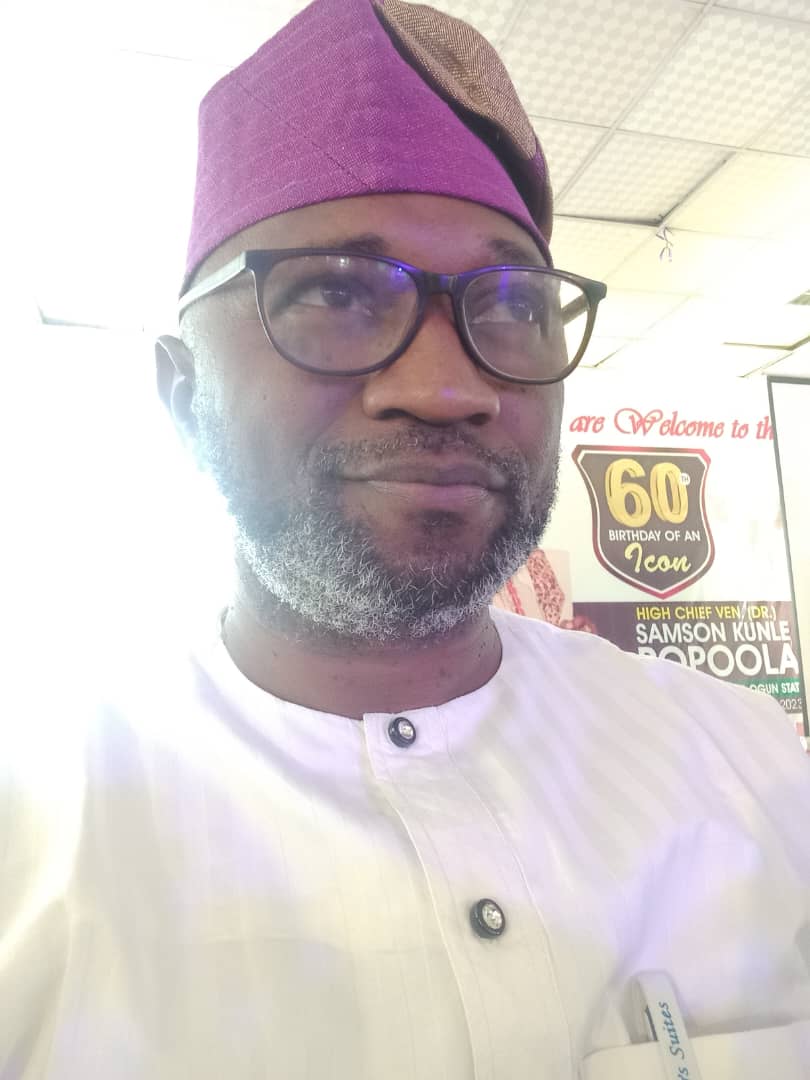Zubairu Umar
The Attorneys- General of the 36 states have filed an objection to the local government funds suit instituted by the Federal Government at the Supreme Court.
The Commissioner for Justice and Attorney General of Gombe State, Zubairu Umar, in an interview with The PUNCH on Tuesday, confirmed that the 36 states were challenging the Supreme Court’s jurisdiction to hear the local governments’ fund case.
The suit, filed by the Attorney-General of the Federation and Minister of Justice, Lateef Fagbemi (SAN), is slated to commence on Thursday (tomorrow).
A seven-man panel of the apex court led by Justice Garba Lawal, had on May 30, 2024, given the state attorneys-general, who are the defendants, seven days to file their defence.
The court also ordered all the state AGs to be in court on the adjourned date.
Lawal issued the order while ruling in the application for abridgement of time argued by Fagbemi.
The apex court also directed the AGF to file his reply upon receipt of the governors’ defence within two days.
In the suit, the Federal Government is seeking full autonomy for all local government councils in the country over alleged misconduct in the administration of local government councils.
The government specifically prayed the court to issue an order prohibiting state governors from embarking on unilateral, arbitrary and unlawful dissolution of democratically elected local government leaders.
Fagbemi urged the court to grant an order to withhold the funds meant for the local governments in such states that unlawfully dissolve democratically elected local government officials and run them through illegal transitional implementation committees.
He also prayed the Supreme Court for an order to allow the monthly allocations of LGs to be directly paid to them from the Federation Account in line with the provisions of the Constitution as against the alleged unlawful joint accounts created by governors.
But the states in their defence argued that the Supreme Court had no jurisdiction to entertain the suit.
In a unanimous objection, the defendants faulted the AGF for instituting the case.
Speaking to The PUNCH on the states’ grounds for objection on Tuesday, the Gombe AG, Umar, said, “What we are contending is that the Supreme Court has no jurisdiction to entertain the suit, as presently instituted.”
The justice commissioner explained that all the states filed similar objections to the suit, adding that the applications would be heard on Thursday.
He stated, “All the 36 states have filed similar objections. The Honourable Attorney-General of the Federation has yesterday (Monday) filed his response to the states’ preliminary objections. The processes will be heard by the Supreme Court at its next sitting.
Umar questioned the legal grounds for the case, describing autonomy as a non-issue in his state, asserting that the LGAs had financial autonomy.
“On the side of Gombe State, local government autonomy is a non-issue because our local government councils are democratically elected and independently manage their finances that go directly into their accounts. They enjoy unfettered financial autonomy,” he added.
In the same manner, the Kwara State Government said it had asked the Supreme Court to dismiss the suit filed by the Federal Government seeking full autonomy for the 774 local government councils in the country.
In the process filed at the apex court, the state contended that granting the reliefs sought by the Federal Government, “will further impoverish most Nigerians who are downtrodden in the local government areas.”
The objection was contained in the counter-affidavit to the Originating Summons of the Federal Government filed by the Kwara State Attorney-General and Commissioner for Justice, Senior Ibrahim-Sulyman, and obtained by the News Agency of Nigeria on Tuesday.
The Kwara State AG asked the apex court to dismiss the originating summons filed by the Federal Government and the reliefs sought, in the interest of justice.
The Kwara AG, who is the 23rd defendant in the case, further said the agitation of the plaintiff regarding joint account “is grossly misconceived and a contradiction to the provisions of section 162 (6) and (8) of the Constitution.’’
The section, according to the AG, provides that funds meant for the local governments “must be allocated to the state in a special statutory account and shall, in turn, be distributed to all the LGs in the state in such terms as may be prescribed by the state House of Assembly.”
He also argued that the misconception of the Federal Government should be nipped in the bud because of an earlier apex court decision in a similar case between Abia State and the AGF.
He referred to the subsisting judgment of the court delivered by a former Supreme Court Justice, Late Justice Nikki Tobi, in the case, which held: “The National Assembly cannot validly make a law permitting the direct allocation of funds to the local government councils.
“Rather, such money must be allocated directly to the state, which shall in turn pay same into the state joint local government account vide section 162 (6) of the Constitution.”
Ibrahim-Sulyman argued that, going by the decision of the court, the Federal Government in the present case “is turning itself into performing the function of the legislature.’’
He contended, “The ideal thing is for the plaintiff to ensure that a bill is sponsored for the amendment of the constitution or a new statute to that effect.
‘’The plaintiff cannot use the back door of the judiciary to import into our law what is not legislated upon by the National Assembly.”
The AG added that contrary to the position of the plaintiff, there was no time Kwara State failed to disburse from the federation account funds meant for the local government.
Kwara faults FG
“The allocation meant for the local governments in the state are released for the use of the local governments, monthly,” he asserted.
The AG also argued that the state was not in the habit of truncating democracy at the local government level as alleged by the Federal Government.
He said the earlier scheduled local government elections in the state could not be held due to protracted litigation over the tenure of the Kwara State Independent Electoral Commission.
Ibrahim-Sulyman said the state had rolled out the schedule for the elections to be held in various local government councils on September 21, 2024.
Besides, the Kwara AG, said, the Federal Government had no power, whatsoever, to refuse to release the funds meant for the local governments to the states.
Ibrahim-Sulyman said payment of the LGs’ monthly allocations from the federation account to the state is a mandatory statutory provision.
He cited a case between Lagos State Attorney General vs AGF filed when President Bola Tinubu was the Lagos State governor and former President Olusegun Obasanjo withheld the allocation meant for the state for creating additional 37 Local Council Development Areas.
According to the AG, ‘’The apex court decision in the case is that the President has no power vested in him to suspend or withhold for any period, whatsoever, the statutory allocations due to Lagos State under the provisions of section 162(5) of the 1999 Constitution.’’
He therefore urged the apex court to hold that the Federal Government has no constitutional power to stop, redirect or withhold the statutory allocations meant for the local government councils in Kwara.
Ogun AG
Also, the Ogun State government has joined other 35 states to demand that the Supreme Court should strike out the suit.
However, in a document made available to one of our correspondents on Tuesday by the state Commissioner for Justice and Attorney General, Mr Sina Ogungbade SAN, the state government had alongside other 35 states filed preliminary objections to this suit on June 5.
The state is number 27 on the list.
Mr Kehinde Ogunwumiju, SAN and Mr Tunde Afe-Babalola, SAN are leading the league of lawyers defending the state in the suit marked SC/CV/343/2024
According to the documents, Ogun State while rejecting the FG’s suit said “It is seeking an order of this honourable court to dismiss or strike out the suit for want of jurisdiction
“Or in the alternative, an order of this court striking out the 27th defendant from the suit among such orders this honourable court may deem fit”
The Ogun State premised the reliefs sought on five grounds
The grounds are, that “this honourable court lacks the jurisdiction to hear or entertain the suit, that the plaintiff lacks the requisite locus standi to institute the suit, that the reliefs sought by the plaintiff are vague, imprecise and speculative. “
Others are that there is no reasonable cause of action against the 27th defendant in the suit and that the plaintiff’s suit ought to have been initiated via a writ of summons and not originating summons
The Ondo State government, through its Attorney General and Commissioner for Justice, Olukayode Ajulo (SAN), had earlier faulted the suit, saying the Supreme Court had no jurisdiction to entertain the matter.
Ajulo argued that the Federal Government lacked the locus standi to institute the suit on behalf of local governments.
Also, commenting on the case, the Attorney-General and Commissioner for Justice in Benue State, Fidelis Mnyim, on Tuesday, said that the state government had applied to challenge the AGF’s suit.
He said, “Benue State has filed a case in response to the Federal Government suit on local government autonomy. I will make the document available to you later.”
In appreciation of the central government’s move to correct the reported abuse of the local government administration, a former National Commissioner of the Independent National Electoral Commission, Prof Lai Olurode, commended President Tinubu for dragging the state governors to court.
Olurode, a retired Professor of Sociology, in a statement obtained in Osogbo on Tuesday, said since previous measures aimed at stopping the continued interference in local government administration by the state government had failed, the recourse to the court to rectify the issue should be supported.
He said, “The relevant section stipulates that the system of local government by democratically elected local government councils is under this Constitution guaranteed.
“It is clear that non-democratically constituted local governments are an aberration which deserved no funding from the Federal Government.
‘’Since the beginning of this democratization process, state governments have not been relating to local government authorities with respect and dignity deserving of the third tier level of governance.
“This is a far superior response than the resort to self-remedy for which former President Obasanjo was castigated when it seized the Lagos State local government funds when the Lagos state under the governorship of Tinubu created additional local council development authorities.’’
Should the Federal Government win the case, the retired INEC official surmised that the local governments would be able to receive their monthly allocation directly from the federal purse.
“If the presidency wins this new celebrated case against the 36 governors, then local governments will be able to receive their funds directly and can then henceforth be blamed for non-performance.
“The presidency and the governors may then become less of a cynosure of attention. Nigerians will become the ultimate beneficiaries of this legal initiative as governments at all levels will become more competitive and possibly more responsible.
“I commend the presidency for this resort to the path of civility, law and order. Nigeria’s democracy will become better strengthened by the outcome of the legal process,” Olurode noted.
By approaching the court, the sociologist said Tinubu has set a good example that would make Nigerians believe more in the saying that the judiciary is the last hope of the common man.
He added, “By this bold choice of recourse to the path of legality, President Tinubu has set a good example that the courts are the last hope of the downtrodden.
Advertisement




